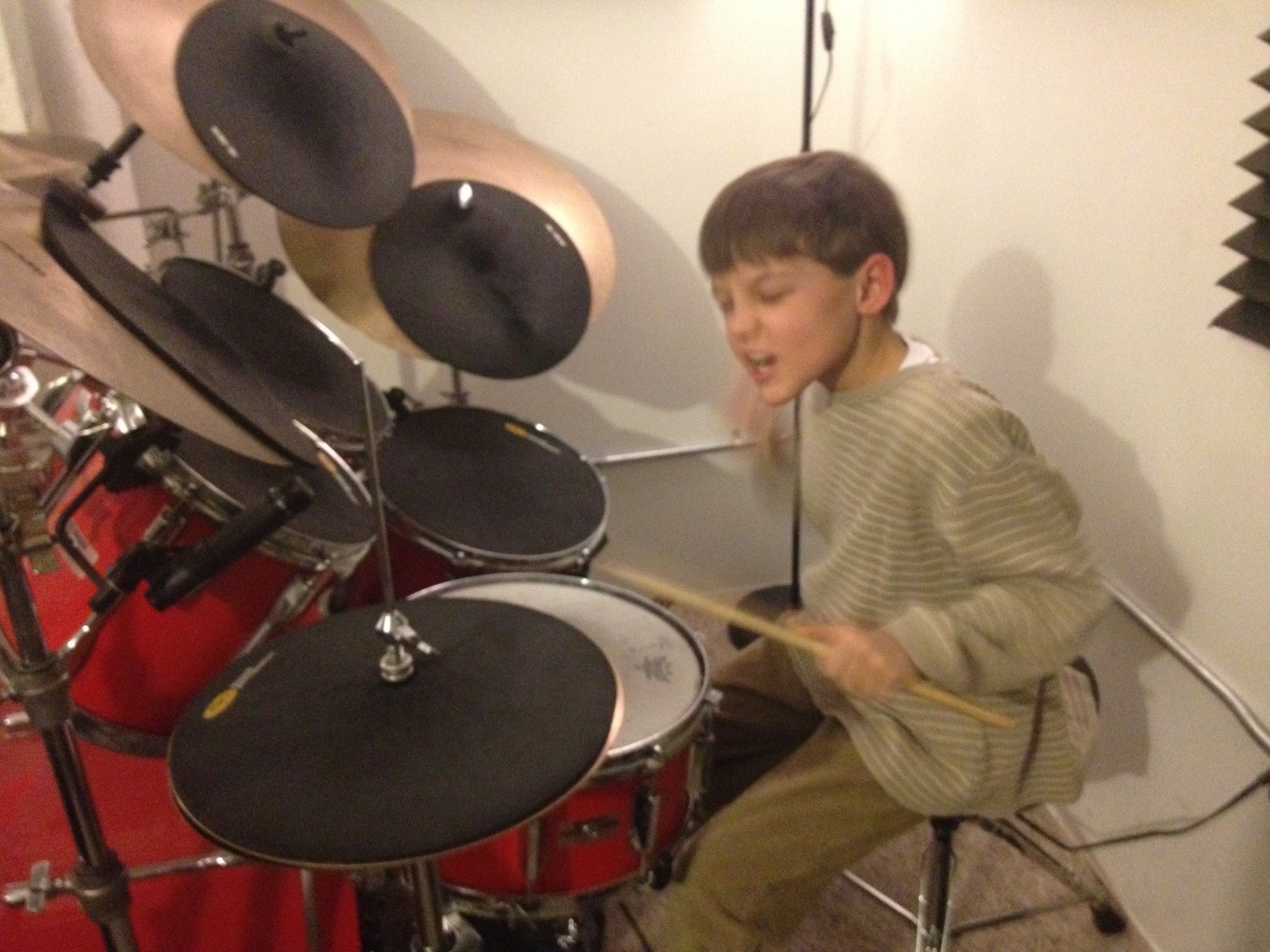What we have determined in the first part is something that I am sure any musician has experienced and dreaded: you practice a tune your butt off and you can’t play it correctly in front of an audience.
I hinted that the remedy is playing with others. Hmm, the plot thickens. What “others” am I going on about? Is it the audience or the musician(s) you play with?
I am choosing to tell a story illustrating what I am referring to.
When I first started playing the drums, I spent an entire summer on my kit. During that time, I focused on mastering the very basics, like how to bang the drums as hard as possible to demonstrate my determination, even if I lacked skill.
Fast forward to my first experience playing with a band. It consisted of two guitar players who were twins (Yes, they really were!). There was no bass player or singer. Long story short: I clicked up the first song, and it was like I never practiced a minute. Oh no! I couldn’t hold to a beat, my right foot moved at the wrong time, and my hands had a mind of their own. You could forget about fills, dynamics or following a form. In short, I couldn’t do anything! It was like I had learned the motions of swimming on the shore but, once in the water, I was overwhelmed by a million factors I hadn’t considered, like the waves or the saltiness of the ocean.
Fortunately, just like when you’re dropped into the ocean, my survival instinct kicked in. In a matter of seconds, I managed to straighten up enough so that I could at least keep the song going. Wow! those seconds feel very long when your brain is on overdrive.
As I progressed in my drumming, I always trusted that whatever I had practiced would eventually come through when playing with others. I also noticed that the delay shrunk. It would no longer take me three months to present to an audience what I was working on. My body and mind were becoming attuned to the instrument.
But you might be wondering: what are we to do if we don’t have a bunch of players readily available to try the stuff we practiced?
That’s a good question, and I will answer it in my next blog. I am very aware that this subject is turning into a saga, but it can be a lot of help for many of my students who struggle with performing, as well as for those who want to replicate exactly what they practice on stage.

